
Podcasts have been growing in popularity over the past decade. This isn’t surprising, considering podcasts are a convenient way to engage with your favorite shows while driving, working out, or just relaxing at home.
But what exactly is a podcast? In this article, we’ll dive into the basics of podcasting, exploring its purpose, types, and more. Whether you’re a seasoned podcast listener or a newcomer to this audio form, this guide will provide you with a comprehensive understanding of podcasts.
Table Of Contents
- Quick Summary
- What Is A Podcast?
- What Are The Purposes Of Podcasts?
- 12 Types Of Podcasts
- 1. Interview Podcasts
- 2. Solo/Monologue Podcasts
- 3. Non-Fiction/Narrative Podcasts
- 4. Fiction Storytelling Podcasts
- 5. Open Conversation Podcasts
- 6. Educational Podcasts
- 7. Repurposed Content Podcasts
- 8. News Podcasts
- 9. Comedy Podcasts
- 10. True Crime Podcasts
- 11. Pop Culture Podcasts
- 12. Personal Journal Podcasts
- How Do Podcasts Work?
- What Are The Benefits Of Podcasts?
- How To Listen To A Podcast?
- What Equipment Do You Need To Start A Podcast?
- How To Start A Podcast
- How To Record Your Podcast
- Frequently Asked Questions
- Conclusion
Quick Summary
A podcast is a collection of spoken word audio episodes with a common theme or subject.
There are many different types of podcasts made by creative individuals, including news and education, fitness and health, humor, and even fiction. These are just a few of the most often-used categories.
Creating and releasing a podcast is a straightforward procedure for podcasters. Once they have a few episodes recorded and edited, they publish them to their preferred podcast host.
What Is A Podcast?
A podcast is a digital audio or video file that can be streamed online, downloaded, and listened to on a computer, smartphone, or other mobile devices.
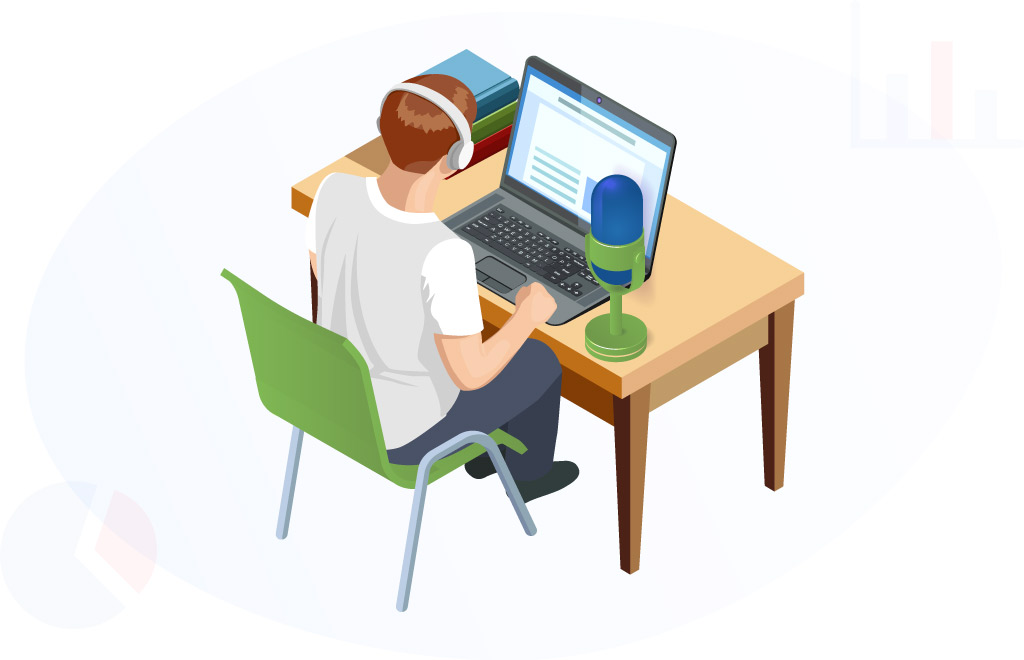
Podcasts can cover various topics, from news and politics to entertainment and education. They are typically produced by individuals or organizations ranging from amateur to professional.
Listeners can subscribe to podcasts using a variety of applications, which automatically downloads podcasts as they become available. Many podcasts are free, while some may require a subscription or other forms of payment.
Podcasts have become increasingly popular in recent years as more people have turned to them as a way to consume audio content on the go. They offer a convenient and flexible way to stay informed, entertained, or educated, and they can be enjoyed anytime, anywhere.
What Are The Purposes Of Podcasts?
Podcasts have a variety of purposes and use, but some of the most common include:
1. Entertainment
Podcasts can be an excellent source of audio entertainment, providing listeners with engaging and entertaining audio content. Many podcasts focus on comedy, storytelling, or fiction, offering a unique form of entertainment that can be enjoyed anywhere, at any time.

These podcasts provide a fun and entertaining way for listeners to escape the monotony of their daily routines and immerse themselves in a world of imagination.
2. News And Current Events
Podcasts are also a valuable source of news and current events, providing listeners with in-depth coverage of the latest stories and developments. Many podcasts provide in-depth analyses of current events, offering podcast insights and commentary beyond what is available in traditional news sources.
3. Education
Podcasts can also serve as a source of education and information. From history and science to personal development and self-help, podcasts on various topics can help listeners expand their knowledge and understanding of various subjects.
Some podcasts delve into complex scientific concepts, historical events, or even practical skills and techniques. With podcasts, learning can be accessible, engaging, and enjoyable.

4. Personal Expression
Podcasts can also serve as a platform for personal expression. Many podcasts are created by individuals who use the medium to share their thoughts, experiences, and opinions with the world.
Whether a personal blog, a conversation with friends, or a solo monologue, podcasts can provide a creative outlet for people to connect with others and share their perspectives.
5. Marketing
Podcasts can also be used as a tool for marketing and advertising purposes. Companies can create podcasts to promote their products and services or to pIf rovide valuable information to their target audience.
They can be sponsored by businesses, providing a way for companies to reach a targeted audience in a more personal and engaging way.
6. Personal Development
Many podcasts focus on personal development, offering advice, tips, and strategies for self-improvement in productivity, mindfulness, and physical and mental health.
If you’re running a business and are concerned of your mental health check this video below.
7. Community And Connection

Podcasts can bring people together and foster a sense of community and connection, allowing listeners to connect with others who share their interests, passions, or experiences.
The bottom line is that the purpose of a podcast depends on the interests and objectives of the creators and the audience’s needs. Podcasts can serve various purposes and can be enjoyed by people of all ages, backgrounds, and interests.
12 Types Of Podcasts
There are several types of podcasts, which are defined by their content, format, and style. Here are some of the most common types of podcasts.
1. Interview Podcasts
Interview podcasts typically feature one or more podcast hosts engaging in conversations with guests, ranging from celebrities and experts to everyday people. The format allows for a deeper exploration of topics and gives listeners unique perspectives and insights.
These podcasts are ideal for listeners who enjoy hearing personal stories, learning about new ideas and concepts, and discovering new perspectives. Examples include “The Tim Ferriss Show” and “The Joe Rogan Experience.”

2. Solo/Monologue Podcasts
Solo or monologue podcasts are typically hosted by a single person who shares their thoughts, opinions, and experiences with listeners. These podcasts can be highly personal, offering listeners a window into the host’s life, thoughts, and experiences.
They can range from humorous and lighthearted to serious and thought-provoking, providing listeners with different content.
3. Non-Fiction/Narrative Podcasts
Non-fiction or narrative podcasts often tell true stories or explore real-life events through in-depth reporting, interviews, and research. They can cover a wide range of topics, from history and science to politics and pop culture, and provide listeners with a wealth of information and insights.
These podcasts are ideal for listeners who enjoy learning new things and discovering more about the world around them.
4. Fiction Storytelling Podcasts
Fiction storytelling podcasts are similar to narrative fiction podcasts, but they are fully scripted and typically feature voice actors and sound effects to create an immersive listening experience.
These podcasts can range from short stories to multi-season serials, and they often feature characters, plots, and themes that are unique to the podcast format.
5. Open Conversation Podcasts

Open conversation podcasts feature two or more people having informal, unstructured discussions about various topics. These podcasts often have a relaxed, conversational tone, making them feel like listeners are joining in on a conversation between friends.
They can cover various topics, from current events and pop culture to personal experiences and relationships, making them ideal for listeners who enjoy unscripted, authentic conversations.
6. Educational Podcasts
Educational podcasts help listeners learn new things and expand their knowledge on specific topics. These podcasts can range from academic lectures to hands-on tutorials and often feature experts and specialists in their respective fields.
They are ideal for listeners looking to learn new skills, gain deeper insights into specific subjects, or broaden their horizons.
7. Repurposed Content Podcasts
Repurposed content podcasts feature content that has been previously published in another format, such as articles, blog posts, or even video content.
These podcasts often feature narrators reading or summarizing the original content, making it accessible to listeners who may not have seen the original material.
They can be a great way for listeners to catch up on the latest news, trends, and insights on a particular subject.
8. News Podcasts
These podcasts cover current events and news stories, often in a more in-depth and analytical way than traditional news sources.

9. Comedy Podcasts
These podcasts are designed to be funny and entertaining, often featuring comedians or humorous conversations between hosts.
10. True Crime Podcasts
These podcasts explore real-life crimes and mysteries, often featuring interviews with people involved in the cases.
11. Pop Culture Podcasts
These podcasts cover various aspects of pop culture, such as movies, TV or radio shows, music, and celebrity news.
12. Personal Journal Podcasts
These podcasts are often hosted by individuals who share their personal experiences, thoughts, and feelings with their audience.
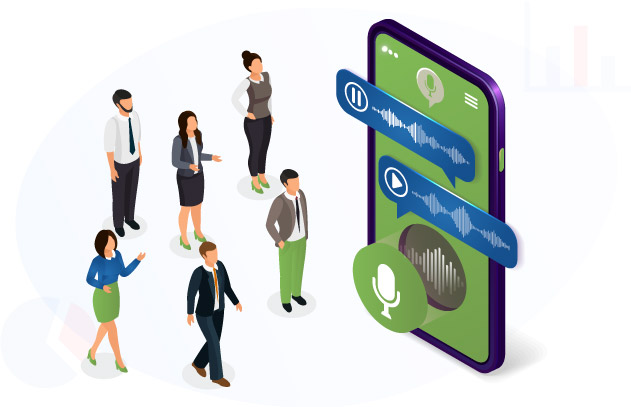
These are just a few examples of the many types of podcasts available, and many podcasts may combine elements of several of these categories.
Conversational podcasts have a couple of hosts that spend each episode taking on a topic. It feels like a casual discussion between friends and is the preferred format for an ever-growing list of celebrities.
– Steph Knapp, B2B + SaaS content marketer at convertkit.com
How Do Podcasts Work?
Podcasts are audio or video content distributed over the internet, allowing users to listen to episodes on their computer, smartphone, tablet, or other devices.
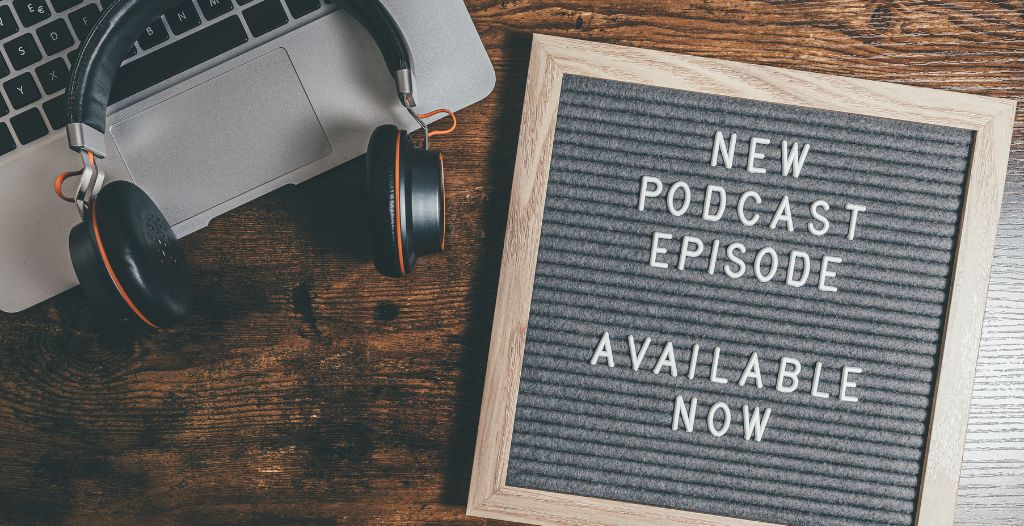
To listen to a podcast, a user first needs to subscribe to the podcast using a podcast app, such as Apple Podcasts, Spotify, or Overcast.
Here’s how podcasts work:
Creation: Podcasts are created by individuals or groups who produce audio content meant to be consumed by an audience. This can range from scripted shows with multiple episodes to interviews or conversations on a specific topic.
Hosting: Once a podcast episode is created, it needs to be hosted on a server that listeners can access. Many podcast hosting platforms can provide this service, including Anchor, Libsyn, and Podbean.
Distribution: After the podcast episode is hosted, it needs to be distributed to listeners. This is typically done through an RSS feed, which is a standardized format for distributing podcast content over the internet. Listeners can subscribe to this feed using podcast apps, such as Apple Podcasts, Spotify, or Google Podcasts.
Listening: Once a listener has subscribed to a podcast, they will automatically receive new episodes as they are released. They can listen to these episodes on their device, whether a smartphone, tablet, or computer.
Many podcasts are free to listen to, although some may require a subscription.
Ultimately, podcasts are a popular and convenient way for people to access audio or video content on various topics. They offer flexibility and control over when and where to listen, making them a great option for entertainment, education, and staying informed
What Are The Benefits Of Podcasts?
There are several benefits of podcasts, both for content creators and listeners. Here are some of the most significant benefits:
Convenience And Flexibility
With internet access, podcasts can be listened to anytime, anywhere, on any device. Listeners can download and listen to episodes at their own pace and on their schedule, whether during a commute, while exercising, or doing chores around the house.

Free Or Low-Cost
Many podcasts are free, and even those that require a subscription or payment are usually more affordable than other forms of media, such as books or online courses.
Long-Form Content
Unlike many other forms of media, podcasts offer the opportunity to delve deeply into a topic and explore it at length.
Personal Connection
Podcasts’ intimate and conversational nature can create a sense of connection between listeners and hosts, making the listening experience highly engaging and personal.
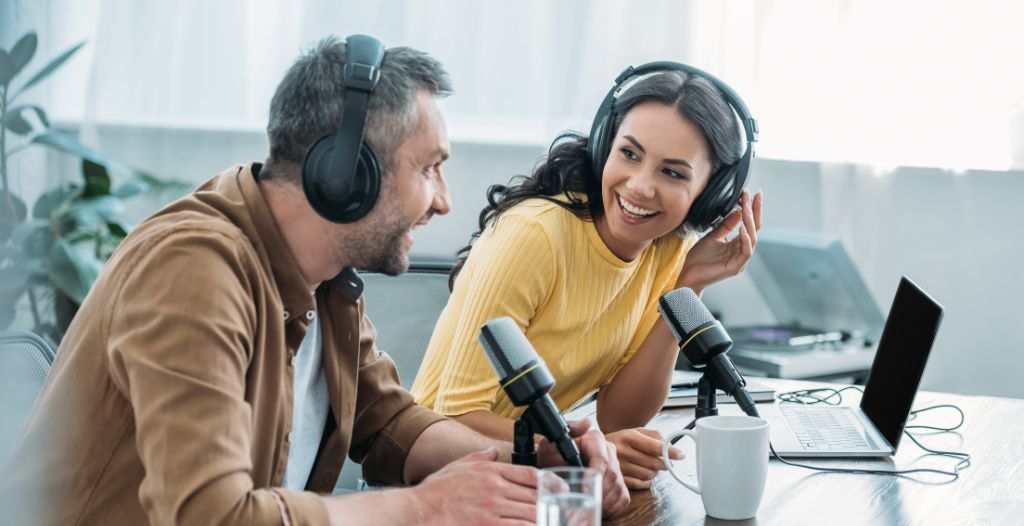
Improved Knowledge And Skills
Podcasts can be educational, allowing listeners to learn new information and improve their skills in a particular area.
Diverse Perspectives
With podcasts coming from all corners of the world, listeners can gain exposure to various viewpoints, promoting cultural understanding and empathy.
Active Engagement
Podcasts allow listeners to engage with the content actively, whether through listening, taking notes, or participating in community discussions.
Because podcasts are typically longer-form and feature conversations or stories, they can be more engaging and immersive than other forms of media.

Income Generation
For those who create podcasts, it can be a source of income through advertising, sponsorships, and merchandise sales.
High-Quality Content
Experts often produce podcasts in their field or by passionate individuals about their topic, resulting in high-quality and informative content.
Community Building
Podcasts can help build communities around shared interests, as listeners can connect with each other and with the hosts of their favorite shows.
Personal And Intimate
Podcasts are often more personal and intimate than other forms of media, as listeners can feel like they are getting to know the hosts more personally.

The bottom line is that podcasts are an excellent way to stay informed, entertained, and engaged with the world around us, and they offer many benefits to both creators and listeners.
One more benefit of podcasts for learning is diversity. Podcasts provide a diverse range of story structures and a wide variety of topics to choose from for absolutely any audience.
– Julius Sim, Podcast expert and writer at bcast.fm
How To Listen To A Podcast?
To listen to a podcast, follow these steps:
Choose a podcast app: Popular options include Apple Podcasts, Spotify, Google Podcasts, and Overcast.
Install the app: Download and install the app on your smartphone, tablet, or computer.
Search for a podcast: Use the search function in the app to find a podcast that interests you.
Subscribe: Once you’ve found a podcast you’d like to listen to, click the “Subscribe” button to automatically receive new episodes as they become available.
Play an episode: Click on an episode to listen to it. You can stream it directly or download it for offline listening.
Adjust playback settings: You can adjust playback speed, volume, and other settings to customize your listening experience.
What Equipment Do You Need To Start A Podcast?
To start a podcast, you’ll need the following equipment:
Microphone
A good quality microphone is essential for recording clear and crisp audio.

Computer
You’ll need a computer with audio editing software, like GarageBand, Audacity, or Adobe Audition, to edit and produce your episodes.
Headphones
A good pair of headphones will allow you to monitor your recording in real-time and ensure you get the best sound quality possible.
Hosting Platform
To distribute your video podcasts, you’ll need streaming services. Popular podcasts include Buzzsprout, Anchor, or Libsyn, to store your digital audio file and distribute your episodes to subscribers.
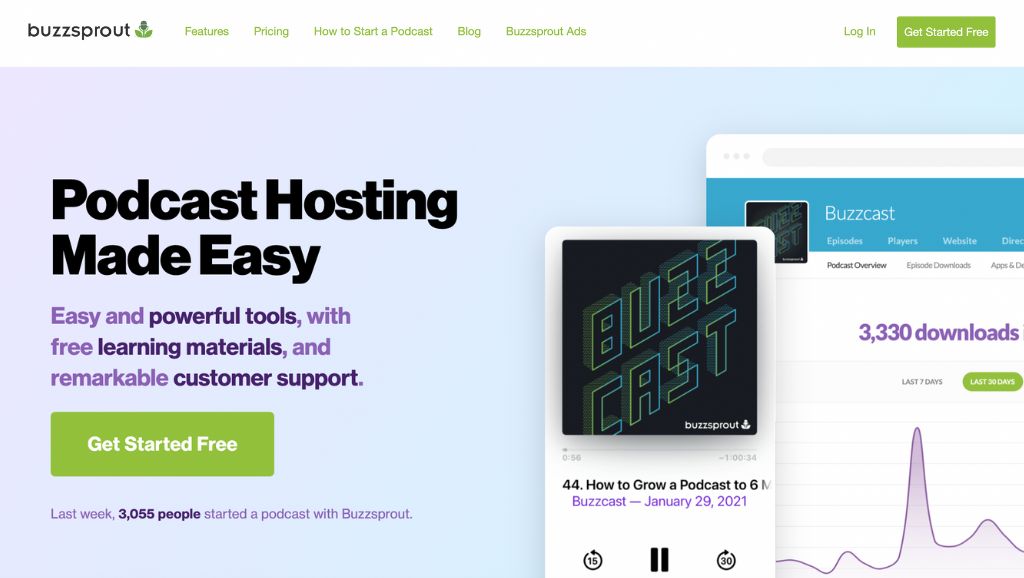
How To Start A Podcast
To start a podcast, follow these steps:
- Choose a topic: Decide what you’d like your podcast to be about. Choose a topic that you’re knowledgeable and passionate about.
- Plan your content: Decide on the format, length, and frequency of your podcast episodes, and create a content calendar to keep yourself organized.
- Choose a name: Select a catchy and memorable name for your podcast that reflects its theme and content.
- Get the equipment: Invest in the necessary equipment, including a microphone, computer, headphones, and hosting platform.
- Record and edit: Record and edit your episodes using audio editing software.
- Publish and distribute: Publish your episodes on your hosting platform and distribute them to popular podcast directories, such as Apple Podcasts, Spotify, and Google Podcasts.
- Promote: Promote your podcast through social media, email, and other marketing channels to attract new podcast listeners and grow your audience.
How To Record Your Podcast
Recording your podcast is a crucial step in creating a successful show. Here are some tips for audio recording your podcast:
Choose a quiet location: Find a room or space free from background noise and echo.
Use a good microphone: Invest in a good quality microphone that will produce clear and crisp audio.
Test your equipment: Before you begin recording, test your equipment and ensure everything is working properly.
Keep your recording level consistent: Ensure your volume level is consistent throughout the recording.
Speak clearly and slowly: Speak at a moderate pace, and avoid filler words such as “um” and “ah.”
Frequently Asked Questions
Can You Earn Money From Podcasts?
Yes, you can earn money from podcasts. One of the main ways to monetize a podcast is through advertising, sponsorships, and brand partnerships. Also, podcasters can offer premium content, merchandise, and live events to generate income.
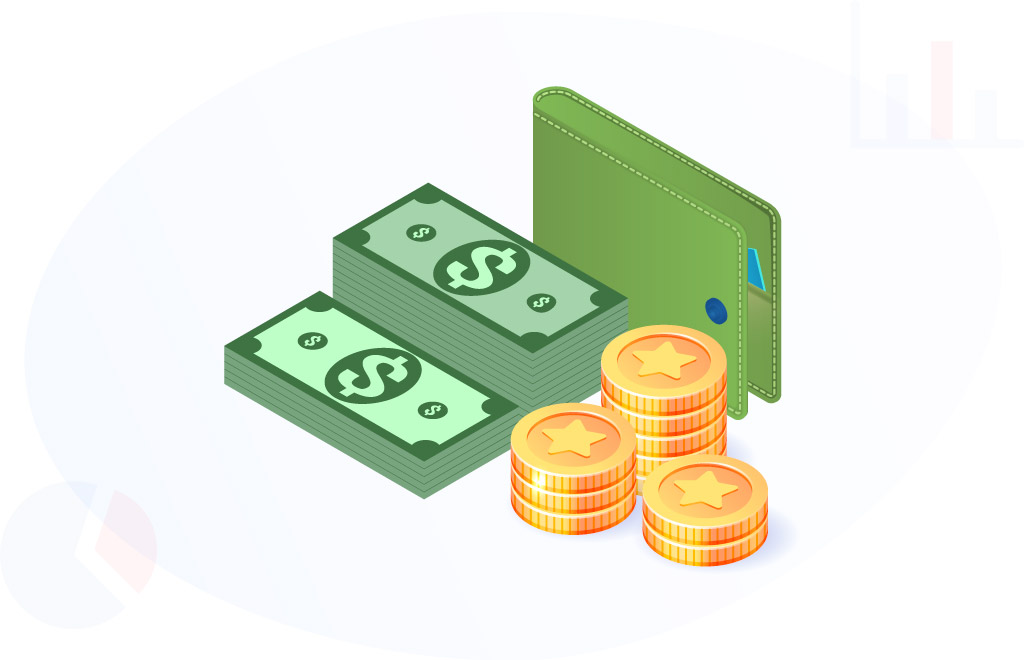
What Are The Keys To A Good Podcast?
A good podcast has several key elements, including clear and professional audio quality, engaging content, a consistent schedule, an active and engaged community, and a clear and unique brand identity.
Effective storytelling and strong hosting skills are essential for creating a compelling and enjoyable listening experience.
What Are The Advantages Of Podcasts?
Podcasts offer several advantages, including convenience, accessibility, and versatility. Podcasts can be listened to at any time, anywhere, and on any device, making them a popular choice for busy people.
They can also be produced on various topics, making them appealing to a wide range of listeners.
How Do I Attract People To My Podcast?
To attract people to your podcast, creating engaging content, promoting your show on social media, and utilizing search engine optimization techniques are important. Networking with other podcasters and collaborating on cross-promotion can also help increase visibility.
Conclusion
Podcasts are a popular and versatile form of audio content that offer a wide range of benefits, including accessibility, convenience, and engagement. If you’re searching for a podcast hosting platform, you’ll find numerous options available, whether you intend to enjoy podcasts for entertainment, enhance your knowledge, or make money podcasting.
With the right equipment, planning, and promotion, anyone can create and share their podcast with the world.
